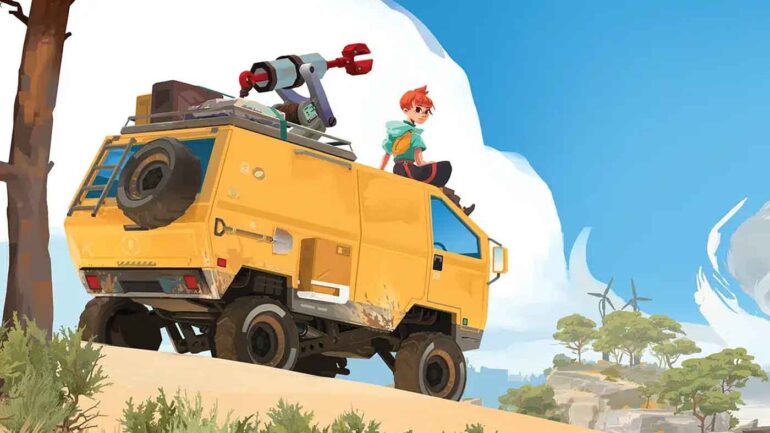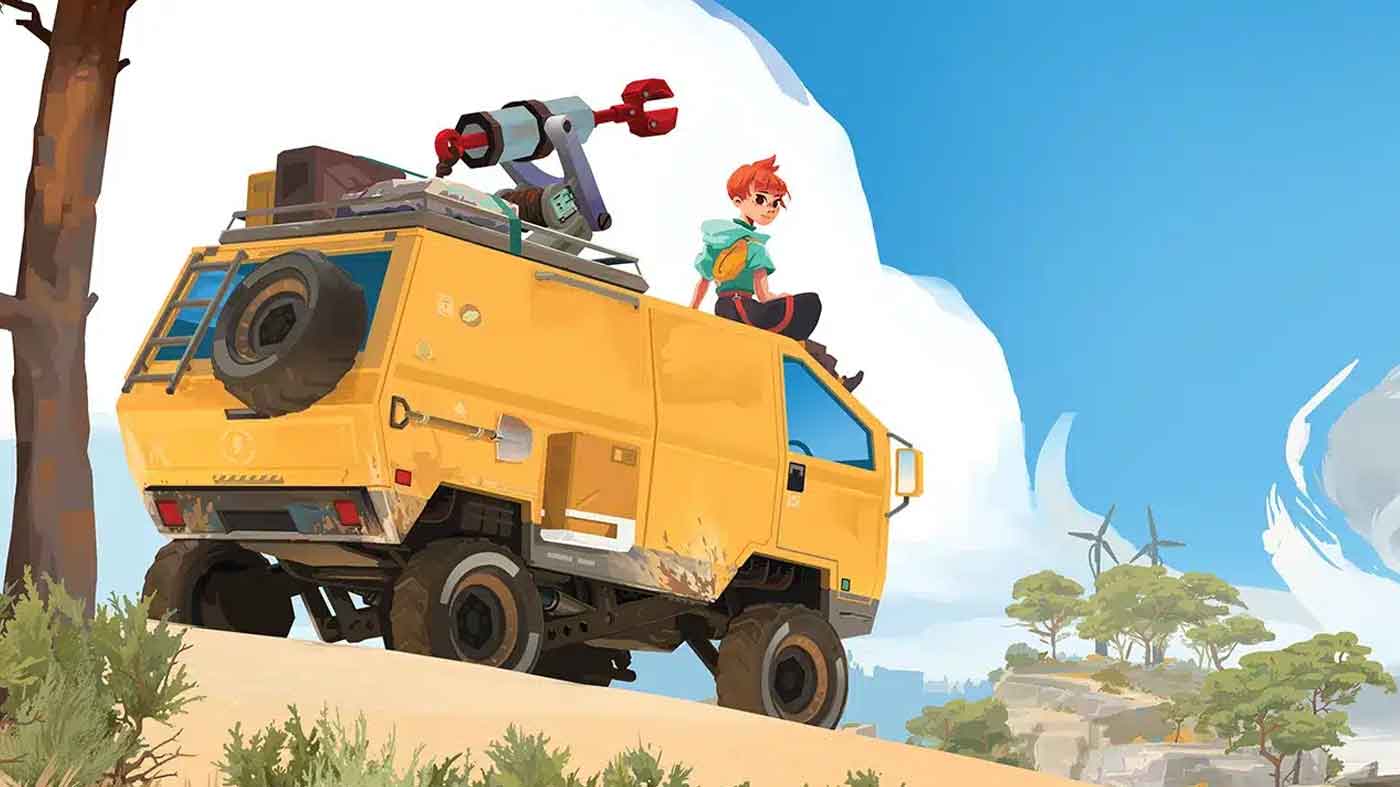Press Start may receive a commission when you buy from links on our site at no extra cost to you.
The soft pitch for Caravan SandWitch is killer. What happens when you take the smooth brain checkboxing of a Ubisoft open-world title and filter it through a French indie lens? Gingerly sprinkle in some tried and true genre tropes and vaguely cozy aesthetic touchstones and you’ve got the individual components to build something charming and contemporary.
Caravan SandWitch plops you in the Lois Griffin-coded shoes of Sauge, a young woman compelled to return to her backwater home world after receiving a distress call from her older sister. The kicker is that this sister disappeared several years ago and your dad, her ex, and almost everyone in your hometown tells you that a distress call is impossible given that the planet has been effectively annexed by the Consortium, a mega-corp that has a monopoly on every aspect of life in this sci-fi world.
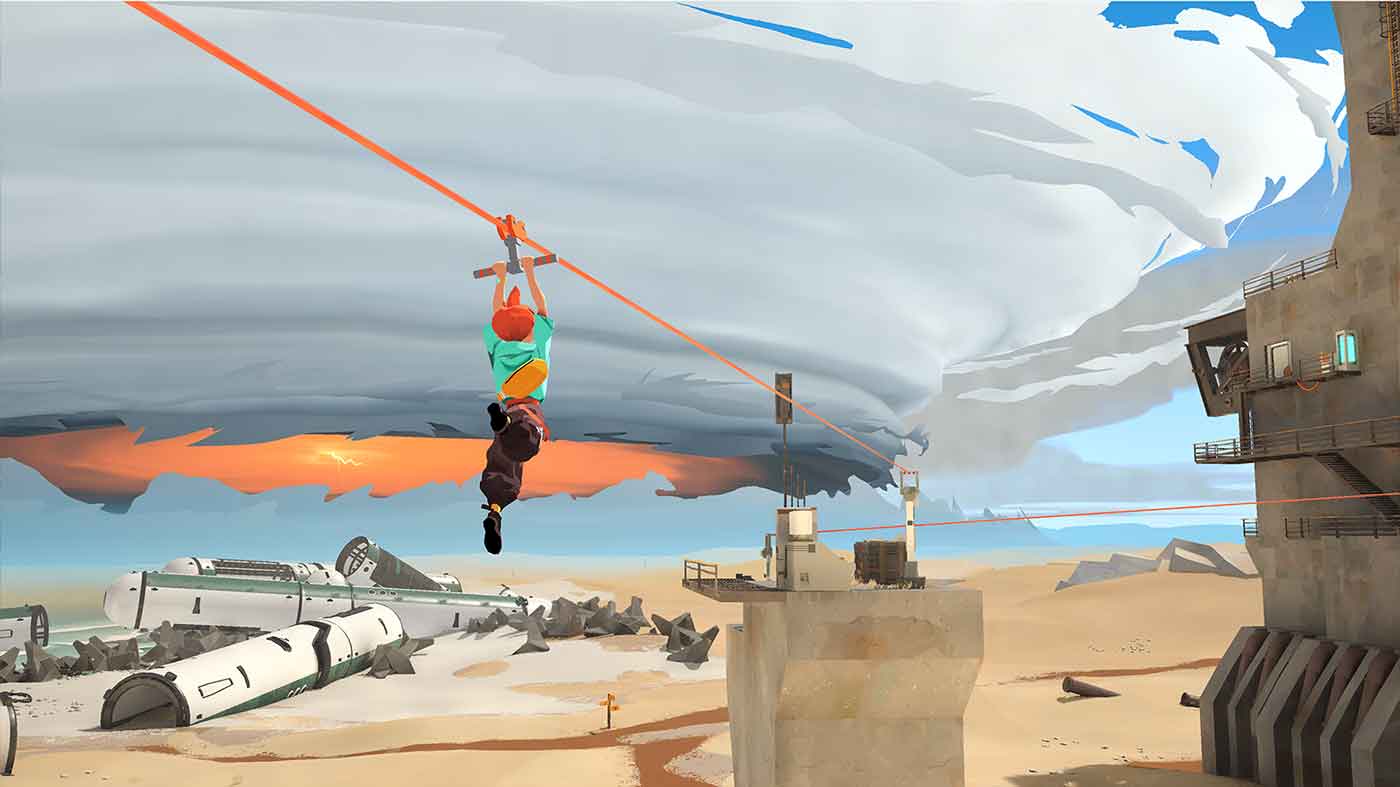
Something of a mining town without a mine, Cigalo is a world in the grips of a glacially paced apocalypse. An ominous energy storm dominates the otherwise cloudy blue skies to the south but nobody seems particularly fussed, instead, the various residents and denizens busy themselves with busted water filters, failing crops, and the thousand other bits of busy work to be found in a place ravaged by industry and left for dead. A striking landscape of jagged cliffs, sporadically defiant greenery, and coastline, Cigalo’s Provence-inspired palette allows Caravan SandWitch to dabble in frontier aesthetics and vertical world design while keeping the game within relatively balmy tonal parameters.
Shot through with sci-fi trappings and a diverse cast of charming locals, Cigalo practically begs exploration, an impulse Caravan SandWitch struggles to wrangle against its greater narrative ambitions and pacing. Sauge is promptly gifted a 4×4 van, an upgradeable and semi-customisable vehicle that lets you zip along dirt roads and careen into the wilds with (relative) ease. Smartly veering more arcadey than sim, the van (and Sauge) are immune to damage and can Skyrim horse themselves into all manner of positions, only ever amusingly stumped by a small rock that stops you in your tracks. There’s a healthy dose of simple platforming and puzzle-solving to be found in Cigalo too, easily Caravan SandWitch’s best expression of streamlined open-world sensibilities and a small joy I never tired of.
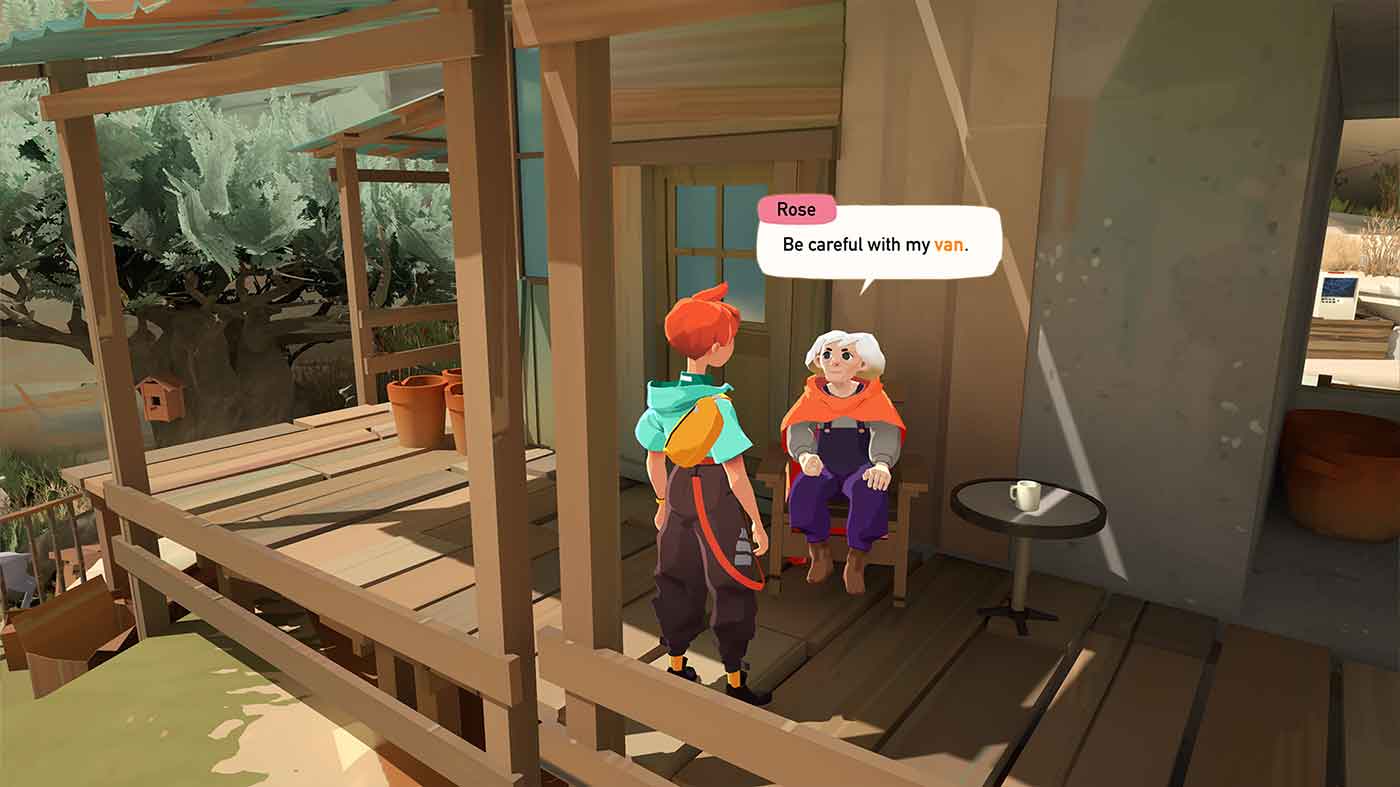
As you progress the game’s story, as paced through hardline chapter markers, the van will pick up several tools that allow for deeper exploration of the map and points of interest. These upgrades are purchased using scrap found in the world and gifted for completing quests, ranging from common green to rare purple. Toss in some map uncovering via radio tower destruction and a few collectable questlines and you’ve hit all the markers on Ubisoft’s golden path to smooth-brained joy in an open world.
Only, Caravan SandWitch digs potholes for itself before setting off which frequently turns smooth into bumpy. The world is effectively open in its entirety after the game’s first hour and given how gorgeously inviting it looks, you’d be forgiven for gathering up some small requests for this or that and trekking out to simply vibe in this space. But then you find you can’t pull that door open yet, you can’t hack that elevator, or ride that zipline to a cool point of interest. Your impulse to roam is thoroughly roadblocked by your inability to interact. So, you snap some nice screenshots, hyper-focus on gathering enough scrap for the next upgrade, and head back out only to begin the cycle anew, just truncated sightly.
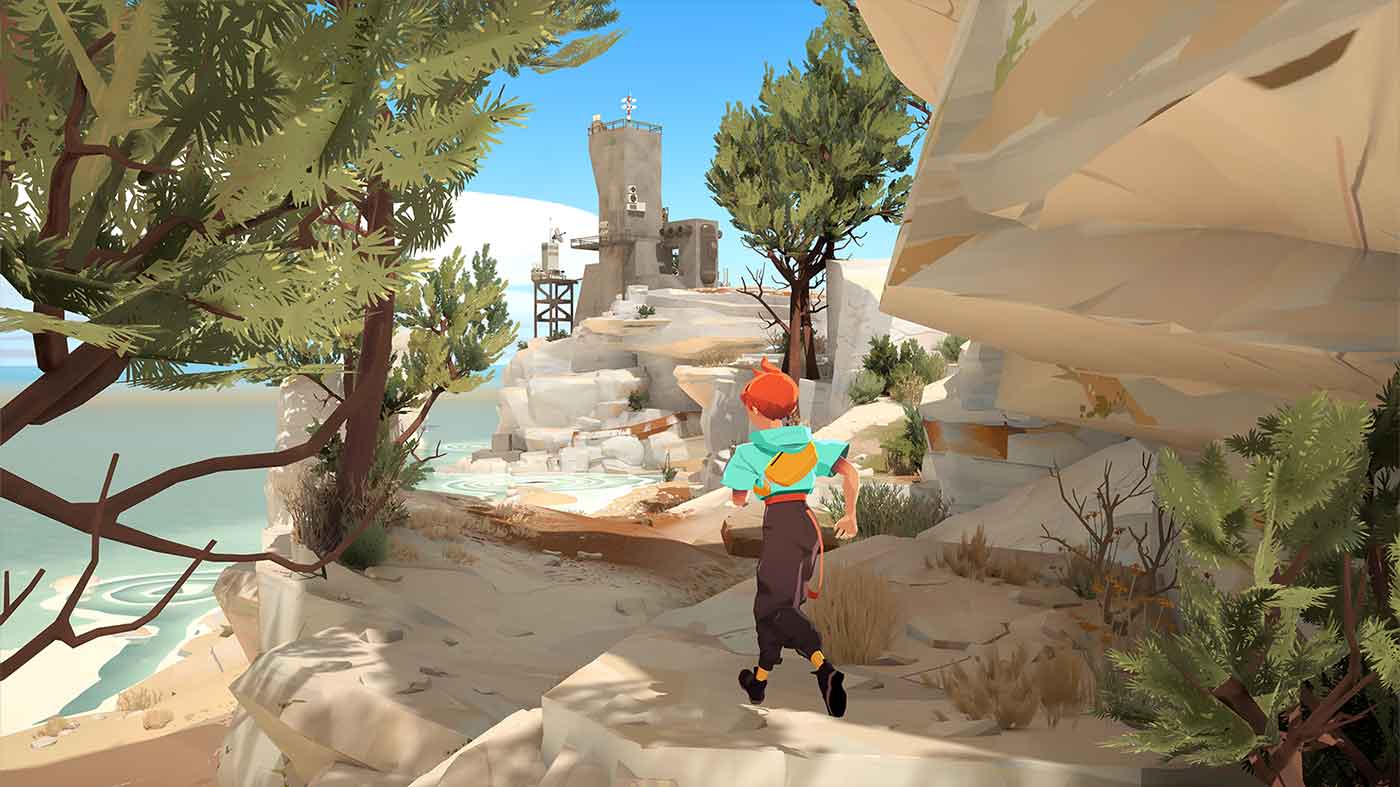
It never stopped feeling antithetical to both the genre the game plays with and the breezy sense of openness Caravan SandWitch works overtime to maintain. By pacing the tools needed to enjoy the space out the way the game does, it funnels you into focusing on the main quest and gathering cycles to reach a stage where you feel you could actually venture out and allow your eye line to dictate your course and not your lack of tools. But Caravan SandWitch is also peppered with time-sensitive quests, meaning that if you progress the story (automatically occurring when an upgrade is crafted) without completing your chores you’ll lose the chance to do them, creating a strangled tension between player and game.
This is a shame because the various comings and goings of Caravan SandWitch’s cast and world are fairly charming if not always compelling. The game’s bigger picture ideas are a rogue’s gallery of indie talking points, from the organic drama of human connection to space capitalism woes, which dabble in momentary depth but largely settle into a comfortably familiar cadence. But in the margins this world comes alive; a race of native frog-creatures observe humans with coy fascination as you help them gather their young and learn about memory as understood through shared consciousness. Or the small family struggling to decide if life in a small, dying town will be existentially better for their kid even if he misses out on big city opportunities.
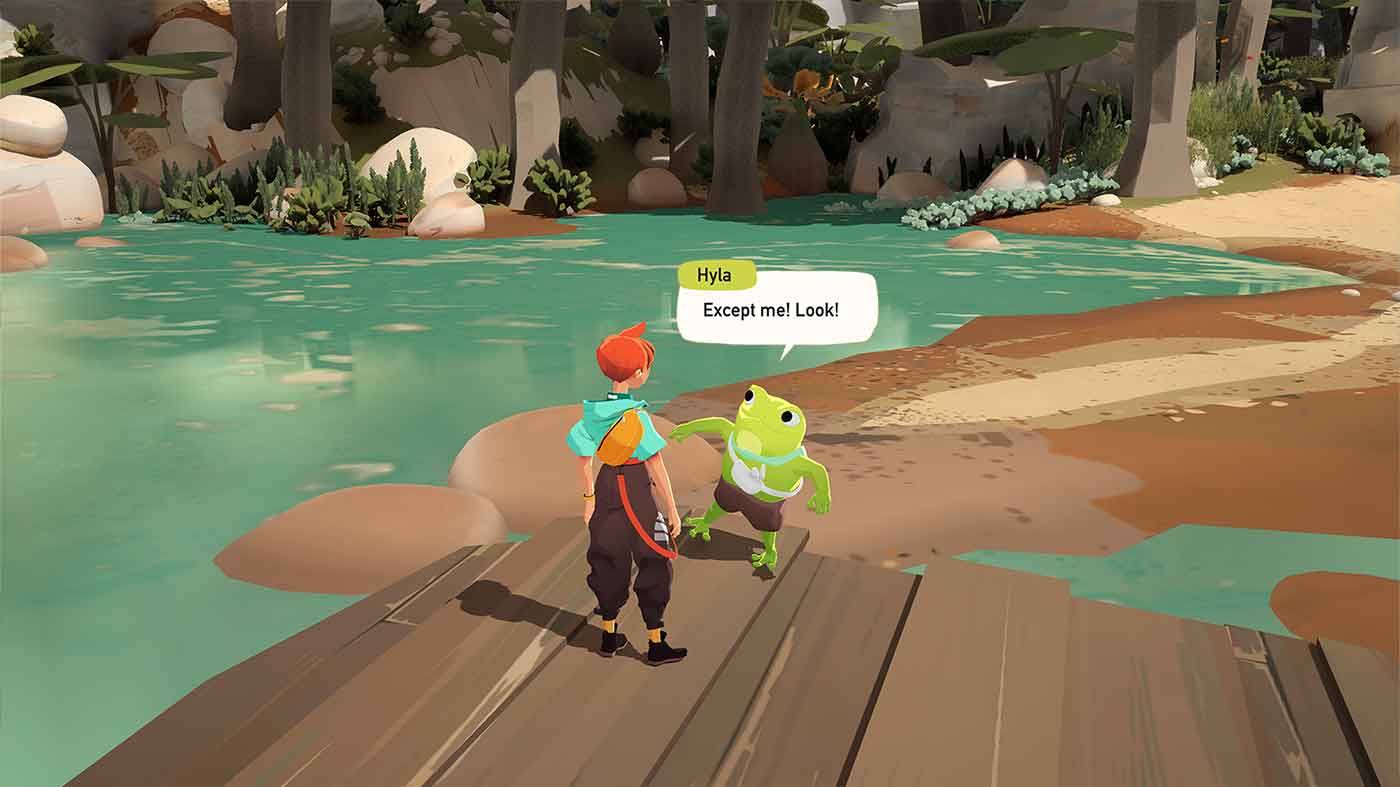
You might also be wondering about that big, missing sister neon sign that kicked off the adventure and Caravan SandWitch feels unsure how to handle that. Where Breath of the Wild and its ilk avoid the narrative dissonance of Quest: Save the World and Side Quest: Johnny Needs Six Apples by simply refusing to acknowledge it, Caravan SandWitch frequently points to what should be Sauge’s singular care. Much like the halting use of exploration tools, the game’s competing desires to be both open and focused pull at its edges in strange ways- it’s pleasantly skilled at building a world for you to enjoy at your leisure but unable to edit its ideas down to a point where doing so feels organic.
Your mileage on Caravan SandWitch’s tensions will vary greatly depending on your relationship to open-world titles and the cloying tropes of cozy indies, but an immacuate eye for aesthetics and some hidden gems at least bring it together to be almost more than the sum of its parts. It helps too that the whole thing hums along with Antyomy’s score, a kind of French-draped “lo-fi beats to roam to” that infuses the game with a sense of place and tone befitting its better intentions and impulses.
But as I trundled out into the wilds to gather up my umpteenth bit of scrap, I couldn’t help but wonder if Caravan SandWitch’s attempted subversion of the open-world genre had been bogged on its otherwise gorgeous dirt roads.


